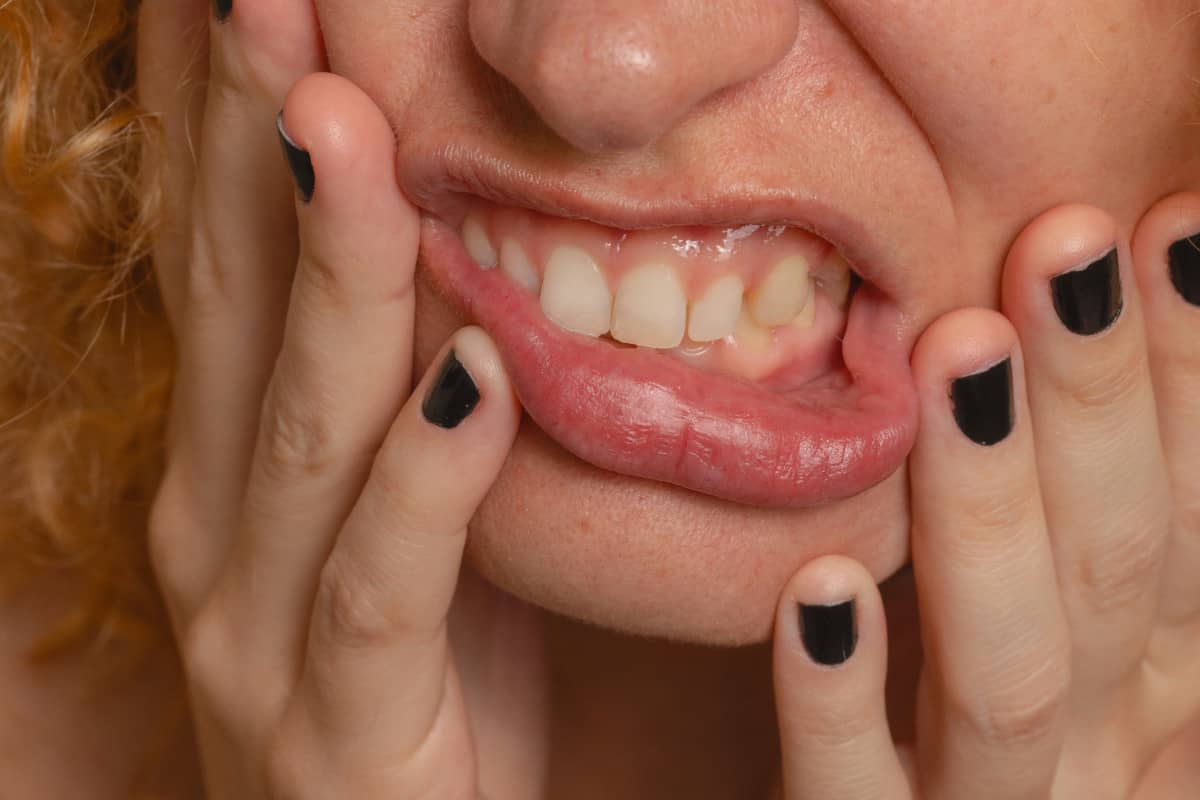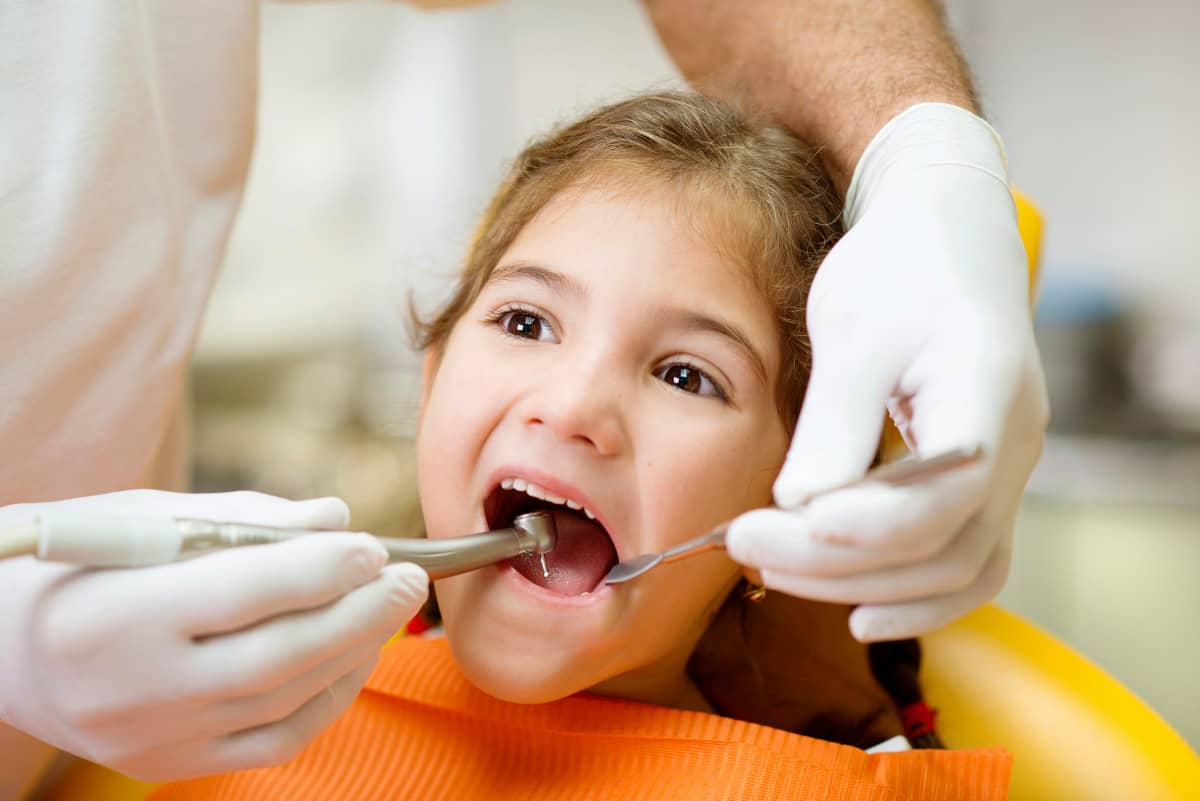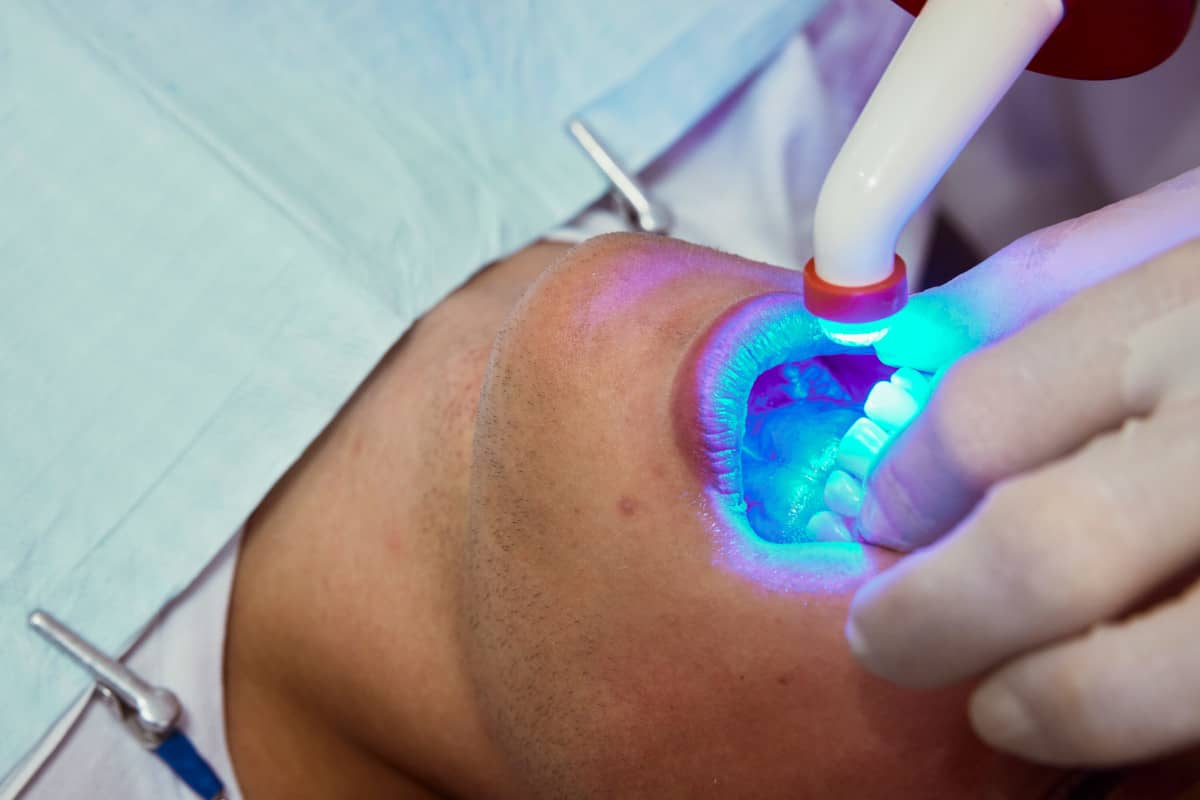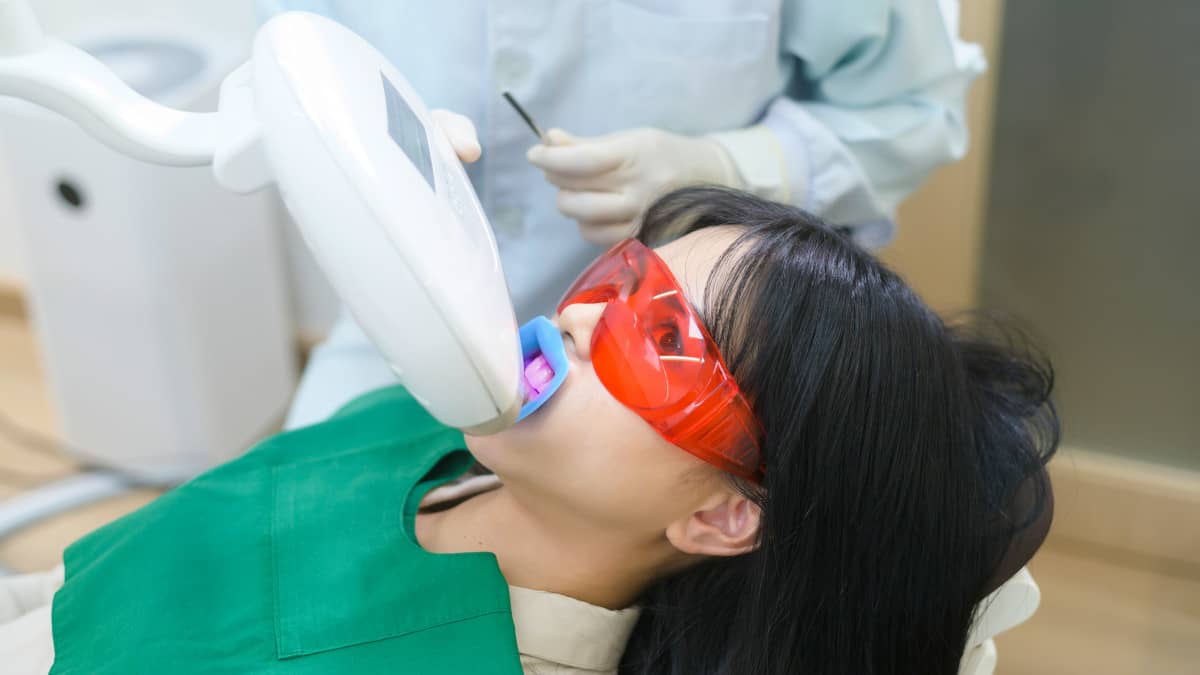
What is halitosis and how to get rid of bad breath?
Bad breath or halitosis is a problem that worries many people. Generally, this problem originates in the mouth, due to a lack of proper oral hygiene. But it is important to know what it really means, what causes it and how to prevent it, as it can sometimes be a symptom of a more serious oral health problem.
What you need to know about halitosis to avoid it or find a solution.
- What is halitosis or bad breath?
- What causes bad breath?
- How to prevent bad breath?
- How is halitosis treated?
1. What is halitosis or bad breath?
Halitosis, bad breath or bad taste in the mouth is usually the result of the accumulation of food debris and bacteria in the oral area, i.e. in the teeth, gums and tongue. Unlike “morning breath” or intense breath that remains after eating certain foods, halitosis is a problem that lasts over time.
What’s more, this bad breath can vary depending on its origin and its main cause, which, although it is usually a lack of oral hygiene, can also be due to other factors as we will see below. On the other hand, halitosis can even go unnoticed by some patients who suffer from it, and it is the people around them who notice the problem.
In general, bad breath can cause embarrassment and even anxiety in some people who are aware of its existence. Therefore, many resort to chewing gums, mints, mouthwashes or other products that, unfortunately, only mask the problem. In other words, they are only temporary measures that do not combat this pathology at its root cause.
And although, thanks to people’s awareness of the importance of oral hygiene, this problem has been declining in recent years in Spain, there is still a large part of the population that suffers from it. If you are one of these people, you should know that you can go to the dentist to determine the main cause of the problem and find out how to deal with it.
2. What are the causes of bad breath?
As we have already mentioned, halitosis usually originates in the oral area due to the accumulation of bacteria. Although this is the case in 60% of cases, there is another 20% of cases whose origin is different. Therefore, to address the problem and provide a solution, it is necessary to carry out an accurate diagnosis to determine the origin and cause, among which are:
2.1. Poor oral hygiene.
The lack of oral hygiene after each meal causes food remains to accumulate between the teeth and gums , leading to the proliferation of bacteria. In this case, both the decomposition of food remains and the accumulation of bacteria (which in the long term generates a sticky layer or bacterial plaque that is increasingly difficult to remove) can lead to halitosis.
In addition, it is important to take into account the tongue stain(a whitish layer of dirt on the tongue), as it can also trap odour-causing bacteria. In this case, good oral hygiene with the use of a toothbrush, interdental floss and tongue scraper, as well as mouthwash, would be of great importance.
On the other hand, poor oral hygiene can cause halitosis in patients with removable prostheses. In these cases, if, for example, dentures are not cleaned regularly or do not fit properly, food particles can also be left behind for bacteria that cause bad breath to proliferate.
2.2. Oral problems and diseases.
As a result of poor oral hygiene, other types of pathologies such as caries, gingivitis or periodontitis can develop. Both caries and periodontal diseases are caused by the accumulation of bacterial plaque between teeth and gums. In addition to the necrosis or putrefaction of food remains, in the worst cases the bacteria present in the oral cavity can lead to infectious processes that cause halitosis.
Other oral problems that would cause bad breath would be surgical wounds after oral surgery (as in the case of tooth extraction); oral candidiasis, a fungal infection, which manifests itself by white lesions in the soft tissues accompanied by redness; scurvy, a condition caused by a lack of vitamin C, etc.
2.3. Dry mouth or xerostomia.
Saliva is one of the first elements to intervene in the digestion process, helping to cleanse the mouth of those particles that cause bad odour. Therefore, people who suffer from xerostomia and who have an abnormally low saliva production may suffer from halitosis.
2.4. Smoking and alcoholism.
Tobacco use in all its forms and drinking alcohol not only impair general health, but also seriously affect oral health. One of the common symptoms of both smoking and alcoholism is bad breath. In these cases there is also a greater propensity to suffer from diseases such as periodontitis which, as we have already mentioned, is an infectious process that can also cause halitosis.
2.5. Problems of the respiratory system.
In addition to the oral cavity, there are some problems of the respiratory system that have symptoms such as bad breath. These conditions include: rhinosinusitis, an inflammation of the mucosa of the nose and paranasal sinuses or throat; rhinorrhoea, a continuous nasal discharge; nasal obstruction due to malformations or diseases leading to infections; deviation of the nasal septum that narrows the nostrils; mouth breathing, which affects the composition and quantity of bacteria present in the saliva; tonsillitis; bronchitis; pneumonias; pneumonias, which affects the composition and quantity of bacteria present in the saliva: tonsillitis; bronchitis; pneumonias; lung abscesses; lung carcinomas, etc.
2.6. Problems of the digestive system.
Although not as common, gastritis, gastroduodenal ulcers, inflammatory bowel disease, chronic reflux of stomach acid (gastro-oesophageal reflux or GERD), Zenker’s diverticulum (protrusion of the mucosal layers at the pharyngo-oesophageal junction) or hiatus hernia among other problems of the digestive system can be associated with bad breath.
2.7. Consumption of certain medications.
The compounds in some prescription drugs, when digested and transported into the bloodstream, can also cause bad breath as a side effect. On the other hand, there are also medicines that alter saliva production and, as mentioned above, oral dryness can lead to halitosis.
2.8. Consumption of certain foods.
As you probably already know, garlic, onions, some spices, but also cheese and eggs can cause bad breath. Firstly, the odour of these foods during digestion can come back up through the oesophagus and be emitted when speaking or breathing. Secondly, once digestion is complete, the odour may also persist as it enters the bloodstream and reaches the lungs, from where it is exhaled.
On the other hand, coffee can also cause bad breath. Consuming too much coffee can lead to dry mouth and bad breath as a result. However, although once these foods are eliminated from the body the problem ceases, it should be borne in mind that they can cause halitosis if consumed continuously.
3. How can bad breath be prevented?
In order to avoid bad breath or halitosis, especially in those cases whose origin is in the oral area, or is due to certain habits, we recommend:
- Carry out proper oral hygiene at home, using a toothbrush, dental floss or dental floss correctly, as well as regularly cleaning the tongue. The use of mouthwash to camouflage bad breath will not attack the root of the problem, so it is also important:
- Regular dental check-ups. Check-ups help prevent and detect oral problems early. Keeping your oral health in the best condition is essential not only to maintain the integrity of your teeth and gums, that is, to avoid problems and diseases, but it also helps to maintain a balance in the quantity and quality of bacteria that cause bad breath.
- Have professional cleanings. In addition to oral hygiene at home, it is important to have prophylaxis at a frequency recommended by the specialist. This will help to efficiently remove the bacterial plaque that inevitably builds up between teeth and gums and can cause bad breath among other diseases.
- Avoid habits such as smoking or alcohol consumption, or certain high-protein, low-calorie or low-carbohydrate diets (especially if they are not supervised). It is advisable to follow a balanced diet.
- Avoid foods such as garlic, onions, some spices, cheese or eggs, as well as excessive coffee consumption.
- Always try to breathe through your nose and drink plenty of water, especially if you suffer from dry mouth.
4. How is halitosis treated?
If these recommendations to prevent bad breath or halitosis have not worked, it will be necessary to see a specialist to determine the cause of the pathology. If the problem is of oral origin, the dentist will determine the most appropriate dental treatment depending on the disease causing the problem, for example, caries or periodontitis. If this is not the case, another type of specialist will have to determine the origin of the problem and treat it.




